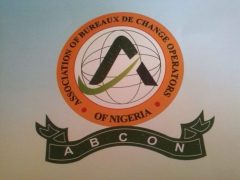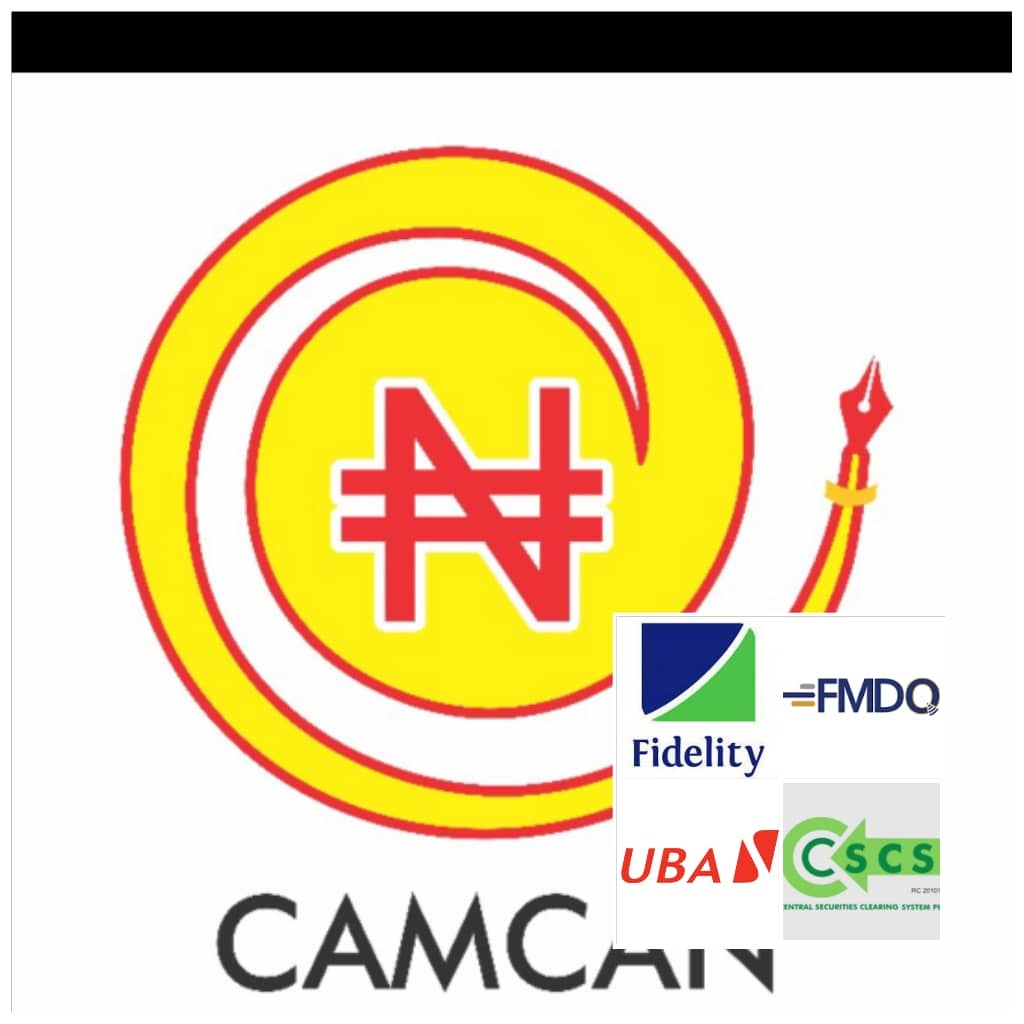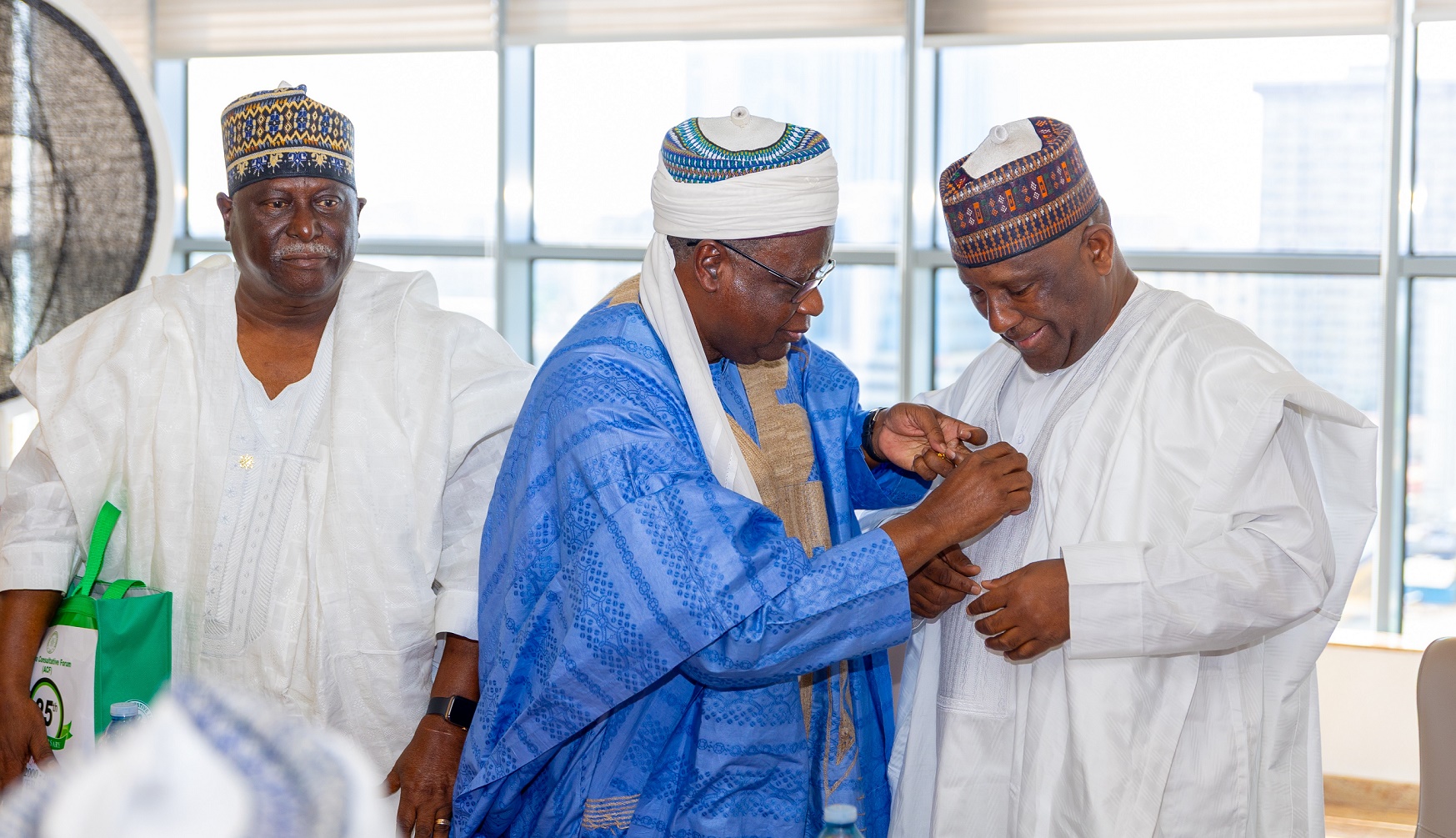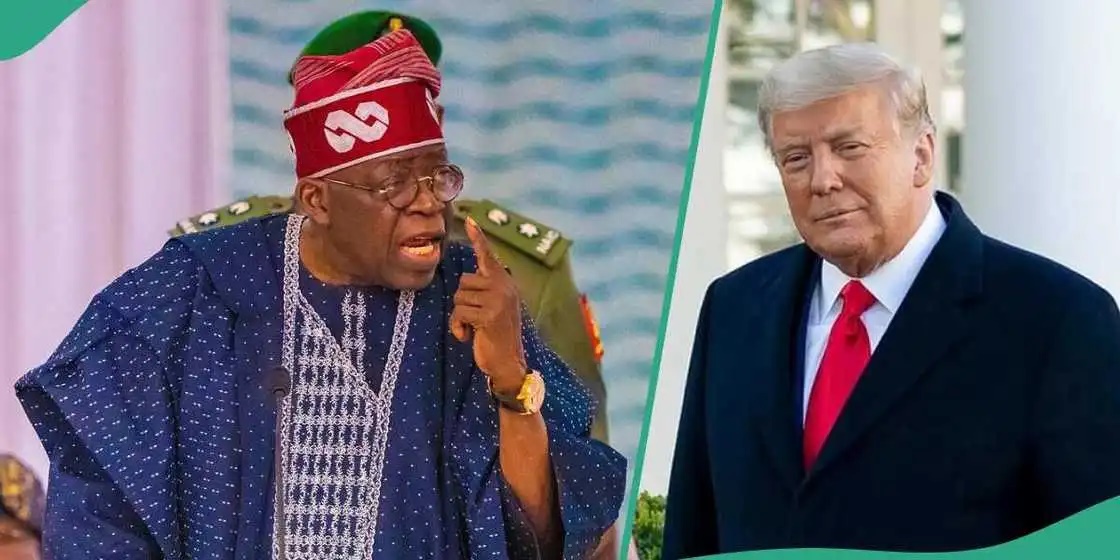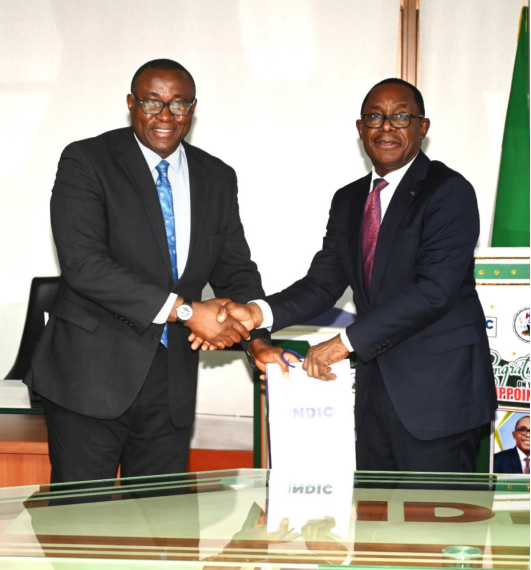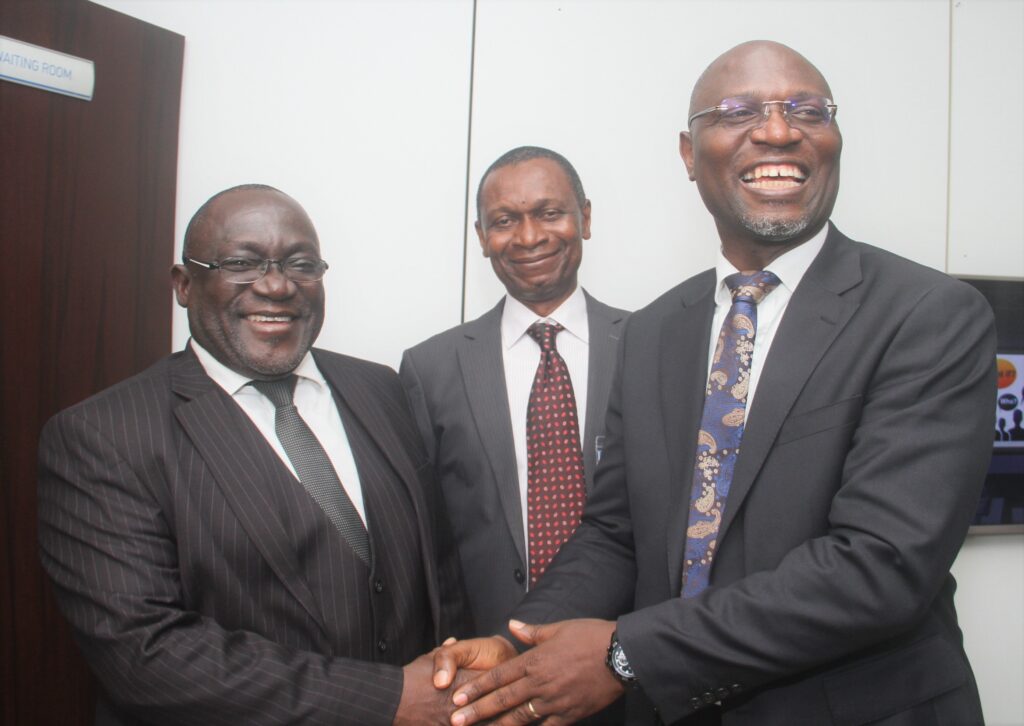
Caption: From left, Chairman Investments and Securities Tribunal (IST), Amos Azi; member, Ike Udunni; and Director–General Securities and Exchange Commission (SEC), Dr. Emomotimi Agama during a meeting between the SEC and IST in Abuja, Thursday.
Chairman of Nigeria’s Investment & Securities Tribunal, Amos Azi, on Thursday in Abuja, the Nigerian capital said it has significantly helped to boost investor confidence in almost 22 years since it was inaugurated.
The tribunal was constituted and inaugurated on December 19, 2002 by the then Minister of Finance, Adamu Ciroma, as an independent, specialised and fast-track judicial body, pursuant to Section 274 of the Investment & Securities Act 2007.
Within the period, Azi said at a meeting between the management of the IST and the Securities & Exchange Commission (SEC), the tribunal has given judgments in over 480 cases with monetary value in excess of N868bn.
In the course of exercising its powers, Azi noted, “the tribunal has not only restored investor confidence in the market but has contributed immensely in the development of capital market jurisprudence by its decisions, and promoted knowledge dissemination and market enlightenment through its law reports.
“It is noteworthy to state here that the creation of the tribunal gave a boost to the International recognition of the Nigerian capital market. You will recall that the existence of the tribunal was part of the factors considered by the International Organization of Securities Commission (IOSCO) in admitting Nigeria’s SEC as “Appendix A” signatory to its multilateral memorandum of understanding (MMOU) in 2006″ he added.
Azi recalled the tribunal was born to address investor confidence and protection- two significant pillars of market development and stability, through a specialized dispute resolution system.
He said, “Suffice to say, this one initiative has set the pace for similar regulatory climes all over the world. There is no gain saying, the Tribunal is the bedrock of dispute resolution in the Nigerian Capital market.”
Welcoming the guests earlier, Director-General of the SEC, Dr. Emomotimi Agama, said continuous Investor education remains an important tool for financial literacy in the development of the capital market.
He noted that the capital market is knowledge based, assuring of the commission’s commitment “to ensuring that information is made available to the investing public.”
The SEC, he promised, “will continue to partner with relevant stakeholders to create more opportunities for learning. We will do more training and sensitisation because it is important we continue to learn.”
This, the SEC continued, is because IST is an important organ for resolving capital market disputes and that as more cases are being resolved, the investing public will begin to appreciate more the role of the tribunal.
IST decisions on cases, he continued, help to enhance confidence which is necessity for a fledgling capital market, assuring that the SEC is committed to partnering with it in the dispensation of justice for the growth of the market.



